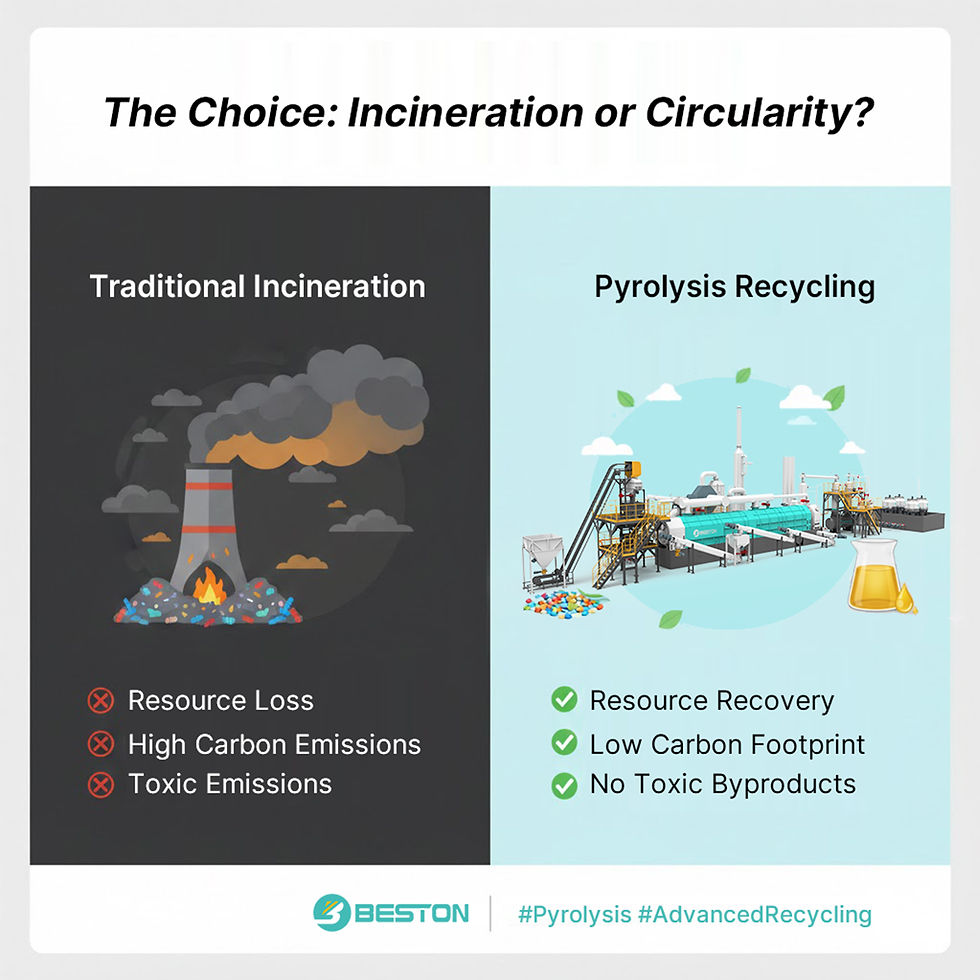Innovative Approaches to Tyre Recycling in Nigeria: Paving the Way for Sustainability
- lee784287
- 2024年6月14日
- 讀畢需時 2 分鐘
In Nigeria, the disposal and recycling of tyres have posed significant environmental and health challenges over the years. With millions of tyres discarded annually, the country has been grappling with how to manage this waste effectively. However, amidst these challenges, several innovative approaches to tyre recycling have emerged, offering hope for a more sustainable future.
1. Pyrolysis Technology
One of the most promising methods of tyre recycling in Nigeria gaining traction is pyrolysis. This advanced thermal decomposition process involves heating tyres in the absence of oxygen to break them down into gas, oil, and carbon black. The gas and oil can be used as fuel sources or further refined into valuable chemicals, while carbon black finds applications in manufacturing. Pyrolysis not only reduces the volume of waste tyres but also provides economic opportunities through the recovery of valuable materials.

2. Mechanical Shredding and Grinding
Mechanical methods such as shredding and grinding are also widely used in Nigeria. Shredding tyres into smaller pieces facilitates easier processing and subsequent use in various applications. These methods are relatively straightforward and can be adapted to local conditions and resources, making them accessible solutions for tyre recycling across different regions in the country.
3. Cement Kiln Co-Processing
Another innovative approach involves co-processing shredded tyres in cement kilns. This method utilizes the high temperatures of cement production to safely combust tyres alongside other fuels. The energy recovered from burning tyres can replace conventional fossil fuels, reducing greenhouse gas emissions and conserving natural resources. Cement kiln co-processing not only addresses tyre disposal but also contributes to sustainable industrial practices.
4. Artisanal and Informal Sector Innovations
In Nigeria, the informal sector plays a significant role in tyre recycling. Artisans and small-scale enterprises have developed creative methods to reuse tyres, such as crafting furniture, shoes, and decorative items. These initiatives not only promote recycling but also generate income and employment opportunities within local communities, contributing to socio-economic development.
5. Policy and Awareness Initiatives
Efforts to improve tyre recycling in Nigeria are also supported by government policies and awareness campaigns. Regulations promoting responsible tyre disposal and recycling practices aim to reduce environmental pollution and health hazards associated with improper waste management. Awareness programs educate the public and industry stakeholders about the importance of recycling and the benefits of sustainable waste practices.
Challenges and Future Outlook
Despite these advancements, challenges remain, including inadequate infrastructure, limited funding for recycling facilities, and the need for more extensive public-private partnerships. Addressing these challenges requires continued investment in technology, infrastructure, and policy frameworks to scale up tyre recycling efforts nationwide.
Looking ahead, the future of tyre recycling in Nigeria appears promising with ongoing innovations and a growing commitment to sustainability. By embracing diverse recycling methods, leveraging technology, and fostering collaboration between government, industry, and communities, Nigeria can effectively manage its tyre waste while creating a cleaner, healthier environment for all.
In conclusion, the evolution of tyre recycling in Nigeria illustrates a dynamic shift towards sustainable waste management practices. Through innovation, policy support, and community engagement, Nigeria is forging a path towards a circular economy where waste tyres are transformed into valuable resources, benefitting both the environment and society at large.



留言